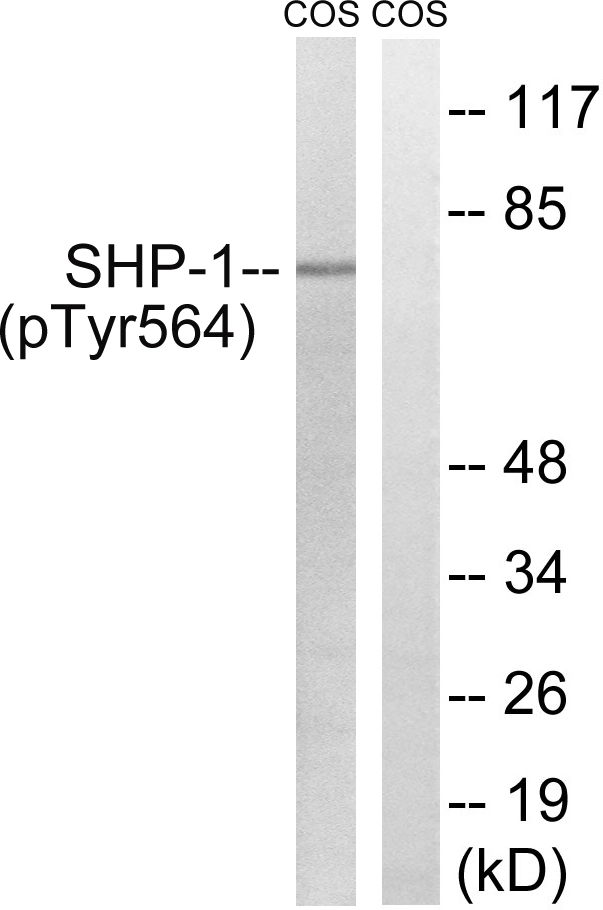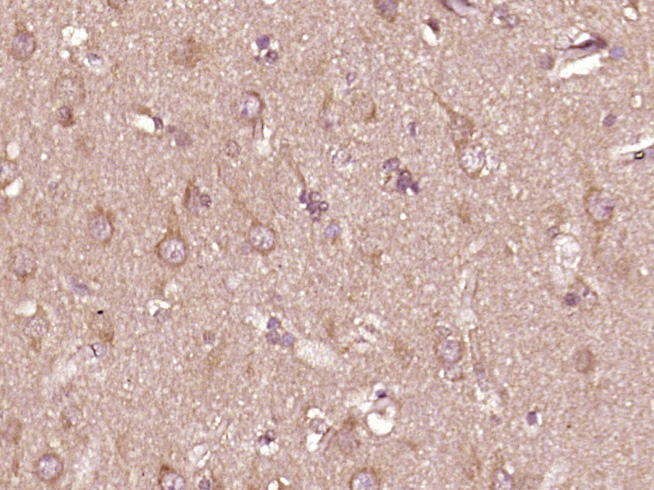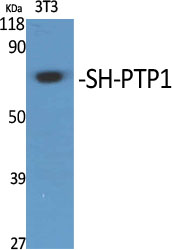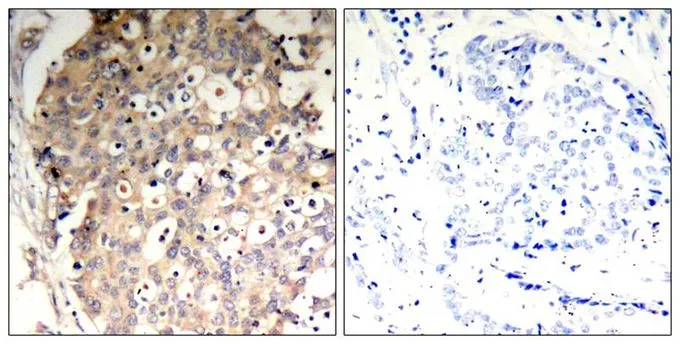
WB analysis of COS7 cells treated with EGF 200ng/ml (30mins) lysate using GTX86454 SHP1 (phospho Tyr564) antibody. The lane on the right is blocked with the synthesized peptide.
SHP1 (phospho Tyr564) antibody
GTX86454
ApplicationsWestern Blot
Product group Antibodies
ReactivityHuman, Monkey
TargetPTPN6
Overview
- SupplierGeneTex
- Product NameSHP1 (phospho Tyr564) antibody
- Delivery Days Customer9
- Application Supplier NoteWB: 1:500~1:1000. *Optimal dilutions/concentrations should be determined by the researcher.Not tested in other applications.
- ApplicationsWestern Blot
- CertificationResearch Use Only
- ClonalityPolyclonal
- ConjugateUnconjugated
- Gene ID5777
- Target namePTPN6
- Target descriptionprotein tyrosine phosphatase non-receptor type 6
- Target synonymsHCP, HCPH, HPTP1C, PTP-1C, SH-PTP1, SHP-1, SHP-1L, SHP1, tyrosine-protein phosphatase non-receptor type 6, hematopoietic cell phosphatase, hematopoietic cell protein-tyrosine phosphatase, protein-tyrosine phosphatase 1C, protein-tyrosine phosphatase SHP-1
- HostRabbit
- IsotypeIgG
- Protein IDP29350
- Protein NameTyrosine-protein phosphatase non-receptor type 6
- Scientific DescriptionThe protein encoded by this gene is a member of the protein tyrosine phosphatase (PTP) family. PTPs are known to be signaling molecules that regulate a variety of cellular processes including cell growth, differentiation, mitotic cycle, and oncogenic transformation. N-terminal part of this PTP contains two tandem Src homolog (SH2) domains, which act as protein phospho-tyrosine binding domains, and mediate the interaction of this PTP with its substrates. This PTP is expressed primarily in hematopoietic cells, and functions as an important regulator of multiple signaling pathways in hematopoietic cells. This PTP has been shown to interact with, and dephosphorylate a wide spectrum of phospho-proteins involved in hematopoietic cell signaling. Multiple alternatively spliced variants of this gene, which encode distinct isoforms, have been reported. [provided by RefSeq, Jul 2008]
- ReactivityHuman, Monkey
- Storage Instruction-20°C or -80°C,2°C to 8°C
- UNSPSC12352203








